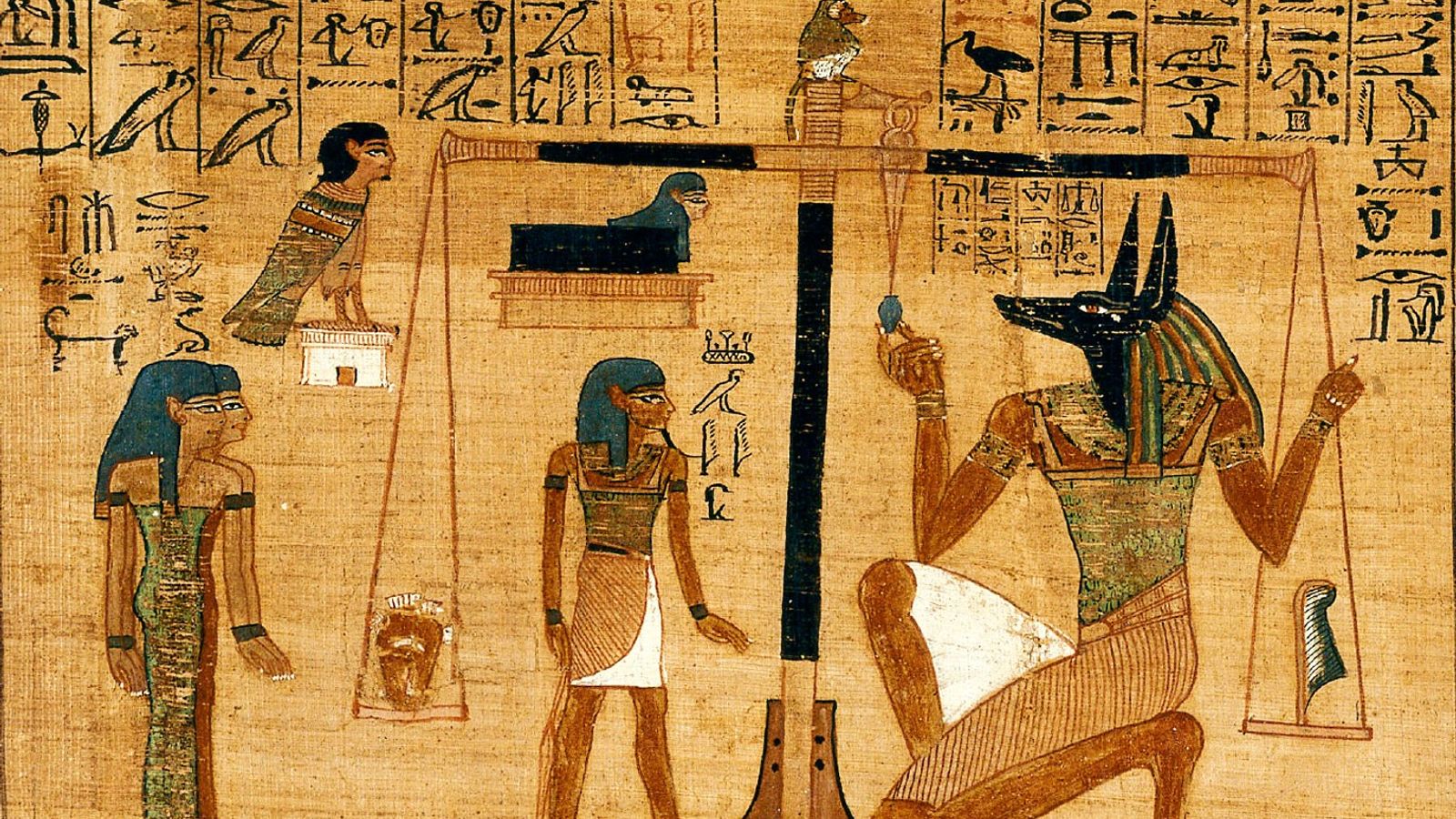

The Ancient Egyptian civilisation that stretched from 3,000 BCE to 300 BCE was one of the earliest known civilisations (along with the Mesopotamians). It was one of the longest lasting, the first to have one government rule an entire nation and produced awe-inspiring architecture. Even so, it’s hard to imagine the world four or five thousand years ago.
To provide context, this was a time before Plato, Caesar, and Jesus. The biblical Abraham and Moses only emerged in the middle period of the Egyptian civilisation. The entire world population at the time was around 20 million – so the same as current-day Beijing. The alphabet had been invented, papyrus was used and there was poetry and song. For transport, horses had just become domesticated, boats started to use sails and chariots were being developed. One thing the Egyptians did do very well was religion, ethics and poetry.
This is where the Books of the Dead comes in. These were found in the tombs of the rulers of Ancient Egypt. The books made of papyrus could stretch to 40 metres in length. They contain spells, hymns, and prayers to help guide the dead through the underworld (Tuat). No two Books were the same, except that almost all contained ‘spell 125’ or ‘The Weighing of the Heart’.
To understand the importance of this spell, one needs to know that the heart, rather than the brain, was thought to be centre of thought, memory and emotion by the Egyptians. Moreover, they believed that when they died, they would be judged on their behaviour during their lifetimes before they could enter the Afterlife. This judgement would be adjudicated by the God of the Dead, Osiris, and a tribunal of 42 other Gods. The deceased would have to name each divine judge and confess they hadn’t committed any offences, ‘negative confessions’. The God of Wisdom, Thoth, would oversee the proceedings.
The heart would then be weighed on scales against the ‘Truth and Justice’ as represented by a feather, the symbol of the Goddess of Justice, Maat (see picture). If the heart was balanced, then the deceased would enter the ‘Fields of Hetep and Laru’. If the heart was heavy, then the beast ‘Ammut’, an animal with the head of a crocodile, the front legs and body of a lion and the back legs of a hippopotamus, would devour the heart.
‘Spell 125’ dealt specifically with the ‘negative confessions’ and was thought to guarantee safe-passage to the Afterlife, hence its inclusion in all Books of the Dead. The spell itself makes fascinating reading. It addresses 42 cryptically named gods in turn and declares the deceased avoidances of committing various transgressions. Some believe it influenced Judaism and the Abrahamic faiths. Here’s a sample:
‘O broad of step who comes from Iunu
I have done no evil
O beaked god who comes from Khemenu
I have not been greedy
O swallower of shades who comes from the cavern
I have not stolen
O flaming faced who comes from Rosetjau
I have not killed anyone
O fiery eyed who comes from Khem
I have not committed corruption
O breaker of bones who comes from Henennesut
I have not told lies
O pale one who comes from Iunu
I have not gossiped
O Wamemty who comes from the tribunal
I have not slept with a man’s wife
O bringer of his offering who comes from Sais
I have not been violent
O Temsep who comes from Djedu
I have not conspired against the king
O watery one who comes from Nun
I have not raised my voice
O distinct of head who comes from the town
I have been rich only on my own’
You can find the full list here.
Bilal
Spring sale - Prime Membership only £3 for 3 months! Get trade ideas and macro insights now
Your subscription has been successfully canceled.
Discount Applied - Your subscription has now updated with Coupon and from next payment Discount will be applied.